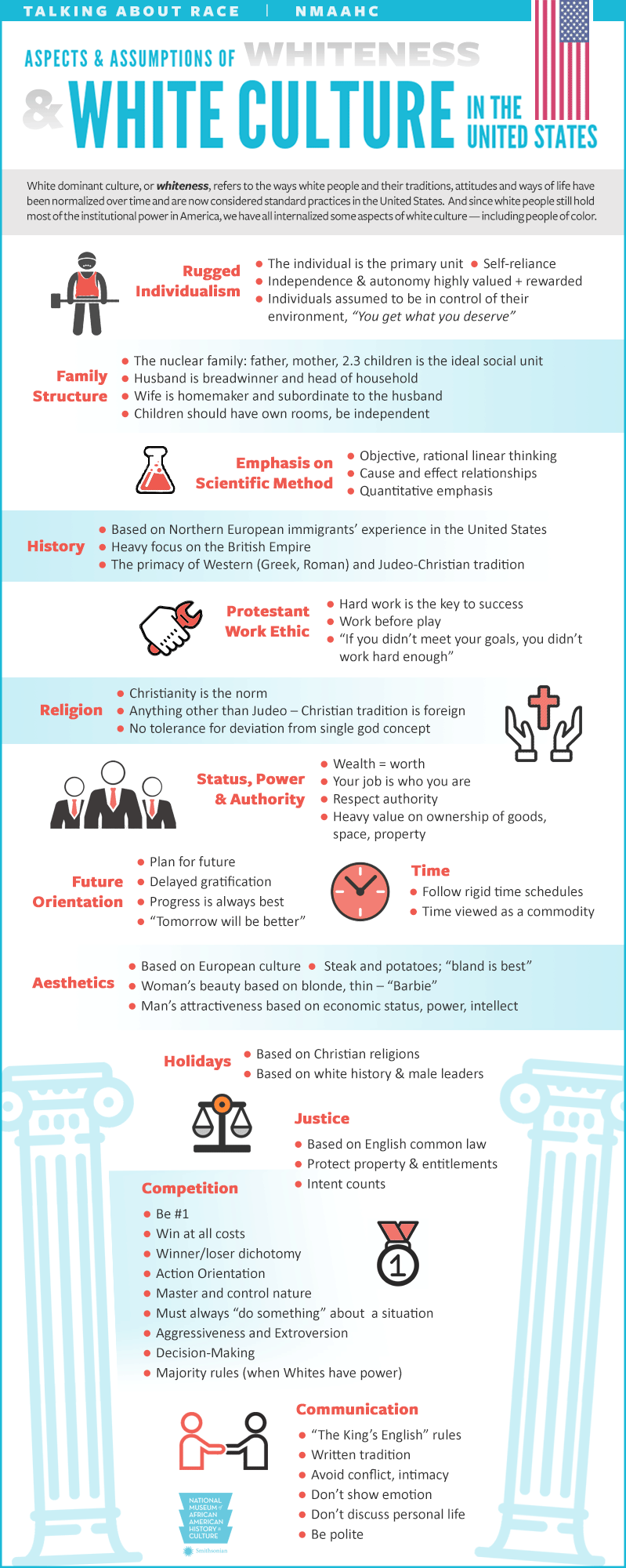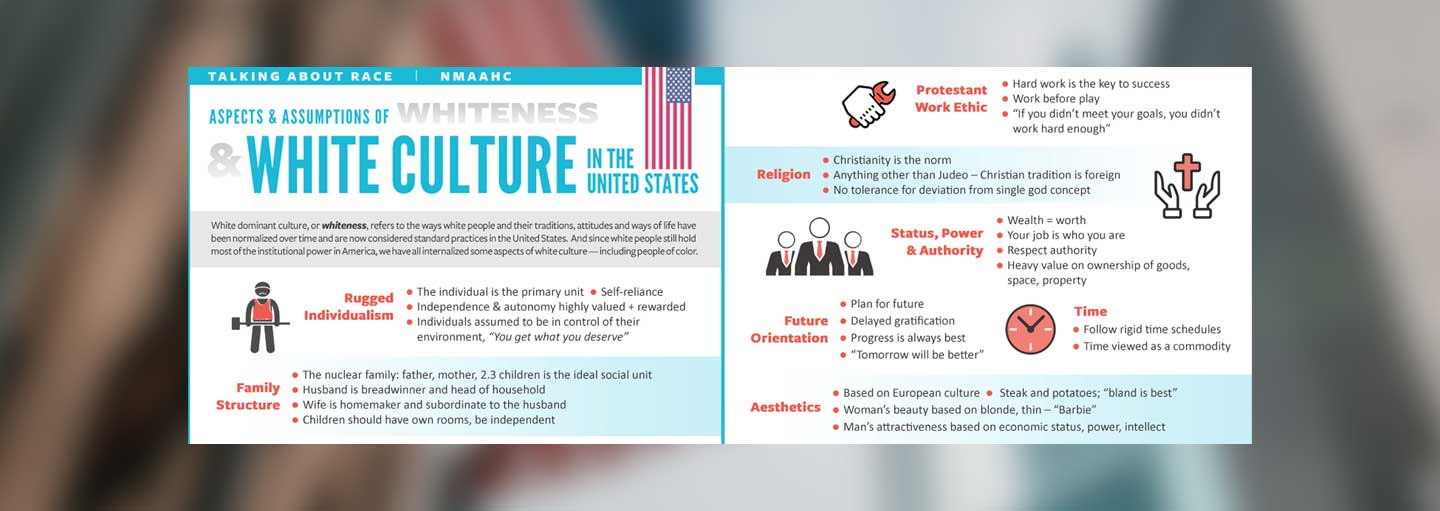The National Museum of African American History & Culture (NMAAHC) has said “hard work” and “respect for authority” are aspects of “whiteness” which have been normalized and are now considered standard practices in the United States.
On the “Whiteness” page in the “Talking About Race” section of their website, the Smithsonian Institution museum published a list of aspects of “whiteness” which have been adopted by all Americans, including people of color, due to living in a “white dominant culture.”
According to the website:
“White dominant culture, or whiteness, refers to the ways white people and their traditions, attitudes and ways of life have been normalized over time and are now considered standard practices in the United States. And since white people still hold most of the institutional power in America, we have all internalized some aspects of white culture–including people of color.”
Aspects of “whiteness” or “white dominant culture” include:
- Self-reliance
- Independence
- The Nuclear Family
- Objectivity
- Rational Linear Thinking
- Cause and Effect Relationships
- The Judea-Christian Tradition
- Hard Work
- Christianity
- No Tolerance for Polytheism
- Respect for Authority
- Planning for the Future
- Delayed Gratification
- Steak and Potatoes
- Decision-Making
- Avoiding Conflict
- Politeness
The website goes on to say white people must acknowledge their “white racial identity and its privileges” as a first step to ending racism.
“Facing your whiteness is hard and can result in feelings of guilt, sadness, confusion, defensiveness, or fear. Dr. Robin DiAngelo coined the term white fragility to describe these feelings as ‘a state in which even a minimum amount of racial stress becomes intolerable, triggering a range of defensive moves.’
“Since white people ‘live in a social environment that insulates them from race-based stress,’ whites are rarely challenged and have less of a tolerance to race-based stress.”
The website goes on to say, “for white people doing anti-racist and social justice work, the first meaningful step should be to recognize their fragility around racial issues and build their emotional stamina.”
























You must be logged in to post a comment.